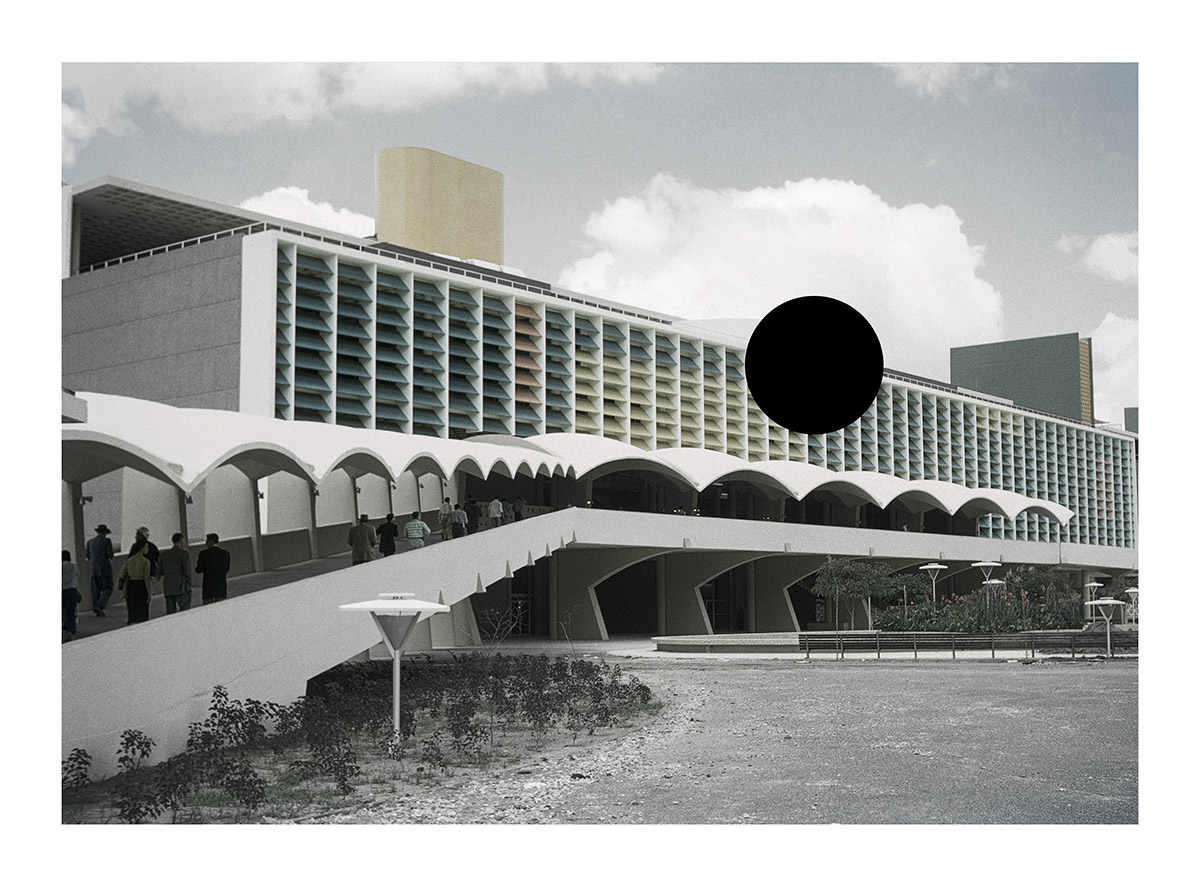By Pietro Daprano.

Tony Vazquez-Figueroa
Petropias I / La Rinconada, 2021
Archival print of a found agfachrome slide manipulated with laser cut and acrylic (Positive). Edition 3/3 + 2 AP
15,5 x 21 in (39,4 x 53,3 cm)
Tony Vazquez-Figueroa (1970) is a Venezuelan-born artist based in Mexico City and Miami who creates aesthetic subsets that speak of events through organic forms, photographs, prints, installations, three-dimensional objects, and drawings from the use of crude oil.
Vazquez-Figueroa’s research may seem to be the product of a personal and collective memory of a country that occupied an important position in the world energy market for having been one of the leaders in terms of heavy and light crude oil reserves in the world.
Now, ironically, it competes with other countries for the leadership in terms of foreign indebtedness, higher unemployment rate, high poverty and insecurity index due to the negligent political exercise of the occupants of the presidential chair and the US sanctions due to the 21st century socialism that worsened the crisis in the Venezuelan society.
The black liquid present in Vazquez-Figueroa’s work is a way of formally exploring the problems that this resource has brought to the citizens of his country and Latin America since colonial times. During pre-Hispanic times, petroleum was known by the locals as mene, and was basically used for medicinal purposes, as a source of illumination, and for caulking canoes.
The ideas of a collective heritage are obscure to understand without productive oilfield platforms in Venezuela. No brightness reminds us of the discovery of the oil well by Alexander von Humboldt in the Araya Peninsula nor the government’s commission to José María Vargas to investigate oil. Only the empty cracks of a vast moment of crisis and the uncertainty of an oil process that perhaps reached a dead end are recognized.
In the face of this scenario, Vazquez-Figueroa establishes new rows of artistic forms that seek to reimagine a colossal sector that now exports Venezuelan migrants fleeing the worst economic devastation in history.
Vazquez-Figueroa recovers crude oil to talk about its exhaustibility and the implications of this resource’s use against biodiversity. He also generates a deliberative dialogue that examines the impoverished political thinking in Venezuela in order to help us review history and analyze the current economic policy in the dictatorship that, among other things, lacks effective environmental contingency programs.
The artist dismisses the use of traditional materials not to fail to comply with his heritage but rather to order new forms through the use of other materials and media that promote in the near future resources of creation and environmentalist organization.
He also uses archival images associated with tourism advertising with the intention of exploring the symbolic elements used to produce the abstract sensation of progress derived from oil. All this makes his work a paradox of abundance or, in other words, a tool of speculation that alerts us to the fragile and temporary nature of the elements he employs for the benefit of our own lives.